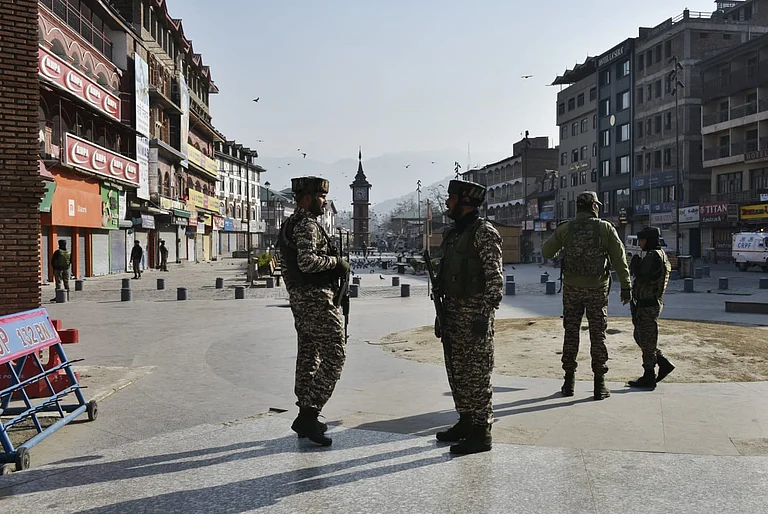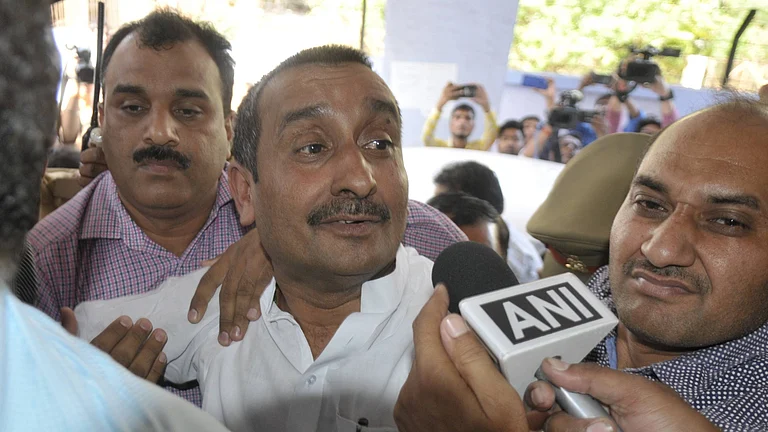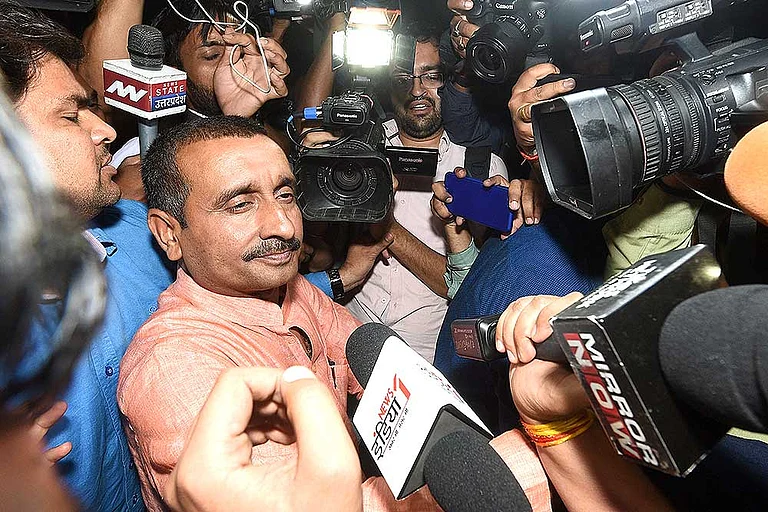February 23 marks 33 years since the reported horrific mass rape by Indian army personnel in the villages of Kunan and Poshpora in Kashmir. The systematic sexual violence unleashed that night has haunted the survivors for decades. With the case still dragging through India's legal system, justice remains elusive.
On the night of 23 February 1991, one of the most horrific alleged mass rapes by Indian army personnel took place in the villages of Kunan and Poshpora in Kashmir's Kupwara district. Around 300 soldiers from the 4 Rajputana Rifles cordoned off the twin villages under the pretext of conducting an anti-insurgency search operation, as militant activity had surged in the region in the early 1990s.
Once inside the villages, the soldiers ordered the men to step outside and forcibly confined the women indoors. At least 23 women, some estimates placing the count at around 40, were then allegedly brutally raped through the night by groups of 4-5 soldiers at gunpoint.
Some victims were young girls, some elderly women over 80 years old. Many survivors reported grievous injuries and bleeding from the horrific sexual violence unleashed on them. The soldiers also severely beat and tortured the male villagers. Many young girls had to discontinue their studies while married women were divorced and ostracized from society after that night. The night of 23 February 1991 will be eternally etched in the survivors' memories as a horrific nightmare.
Aftermath - Protests, Initial Report and Cover-up
The aftermath of the incident was marked by protests, allegations of biased investigations and blatant cover-up attempts. It was only after prolonged protests that an FIR was filed on March 8, 1991, two weeks after the incident. On March 15, a medical team visited to examine the women but the survivors refused, as they were unable to tolerate further discomfort. The initial report by the local magistrate confirmed that 23 women had reported being raped. However, in July 1991, senior journalist B.G Verghese led a Press Council of India team that gave the army a clean chit.
Activists condemned the PCII report as a fabricated, biased whitewash attempt. Under global pressure, in March 1993 the government constituted a committee headed by a retired judge to reinvestigate, but human rights organizations criticized it as another eyewash move to discredit the survivors and absolve the army of the grave human rights violations.
Survivors' Long Struggle for Justice
The Kunan Poshpora survivors had to wage a long and hard battle to seek justice for the horrific mass rape. Between 2005-2011, they approached the State Human Rights Commission of Jammu & Kashmir demanding that action be taken. After inquiry, the SHRC confirmed that mass rape had indeed taken place, thus vindicating the survivors' account. The SHRC ordered compensation to the 40 victims in 2011, but the women never received any payment as the Indian government continued denying the charges. In 2013, over 50 survivors filed a petition in the High Court asking that the case be reopened for fresh probe.
However, in 2015, the army moved the High Court demanding closure of the case citing lack of evidence. The court ordered a controversial stay on further investigations. When the army tried to withdraw the case fully in 2016, a plea was made in Supreme Court challenging this attempt to bury the matter. Currently, after prolonged delays, the legal case drags on with hearings pending in both High Court and Supreme Court. The survivors have faced a long and hard battle for justice lasting over two decades now.
Where Does Justice Stand Today?
February 23 is now observed as Kashmiri Women’s Resistance Day to highlight the courageous fight for justice by Kunan Poshpora mass rape survivors. But 34 years on, the survivors feel justice has been repeatedly denied as the legal case drags endlessly through India's courts. Many key witnesses have died waiting for a verdict. The remaining elderly survivors now fear they may not live to see justice done. Human rights groups have strongly criticized the excessive delays by the Indian judiciary in dealing with the mass rape case.
In 2020, the survivors launched a fresh petition demanding swift action before it is too late. Activists argue the delays underscore systemic issues plaguing India's judicial system when it comes to sexual violence survivors. Demands have grown louder for fast-tracking the case and delivering justice while the aging survivors are still alive to have their day in court. However, the Indian government maintains it is merely a "hoax to malign the army's reputation". With justice still elusive decades later, the horrific Kunan Poshpora mass rape remains a dark stain in Kashmir’s tortured history of atrocities by security forces.



























